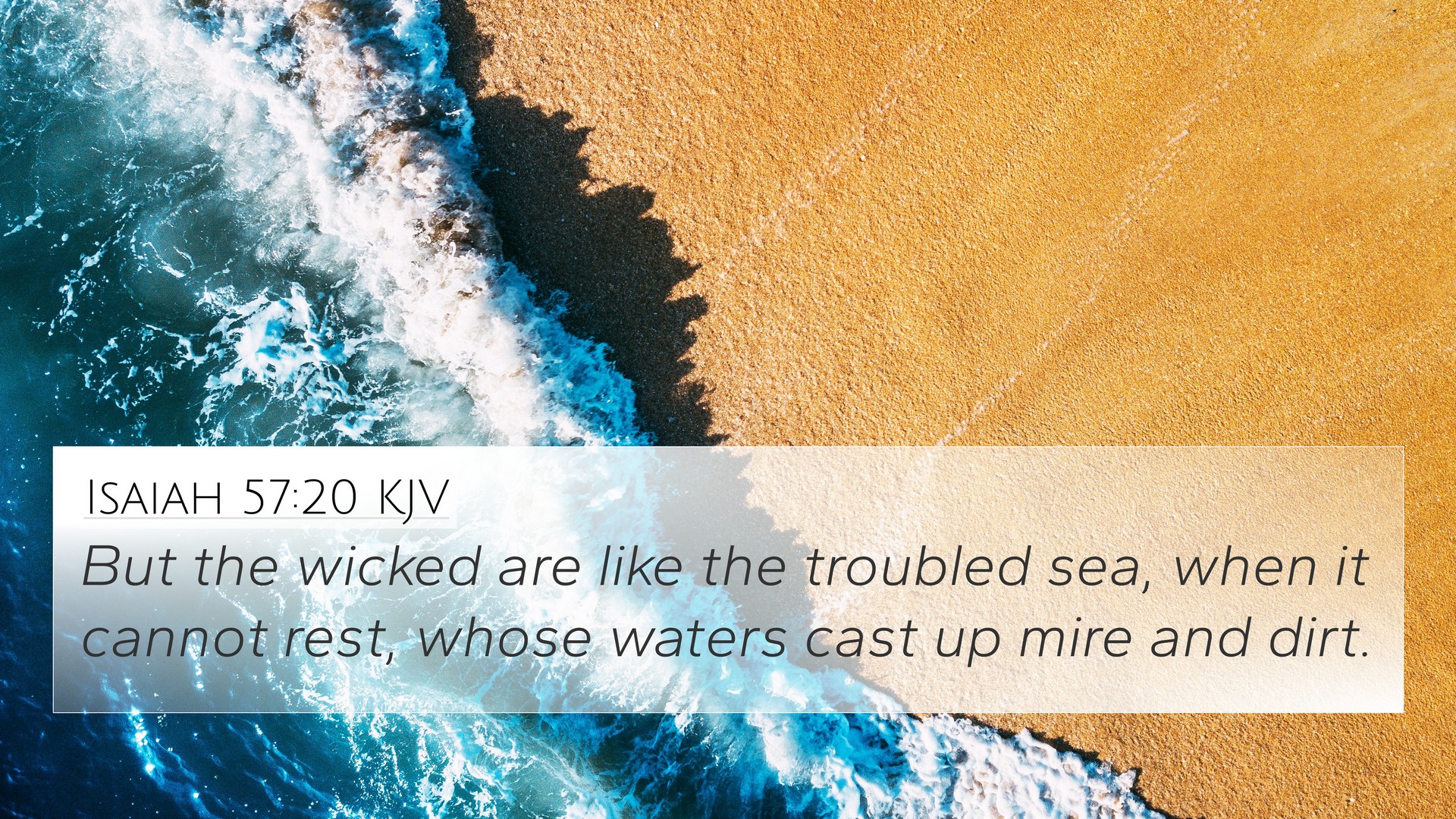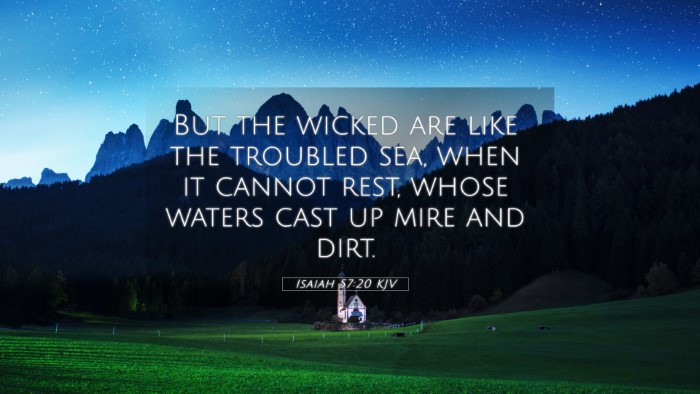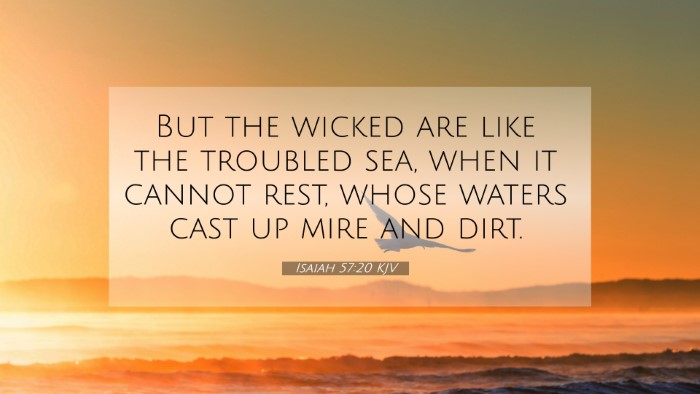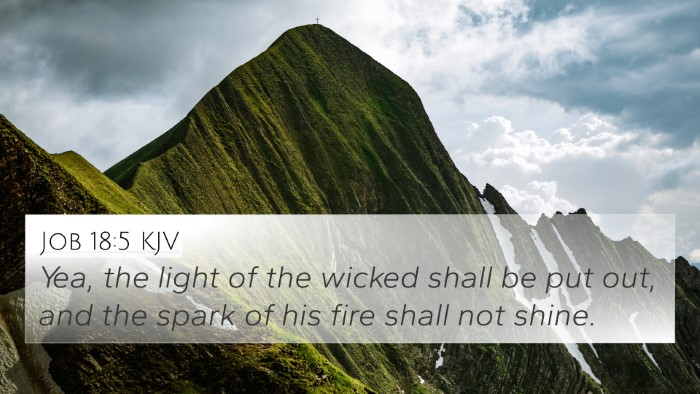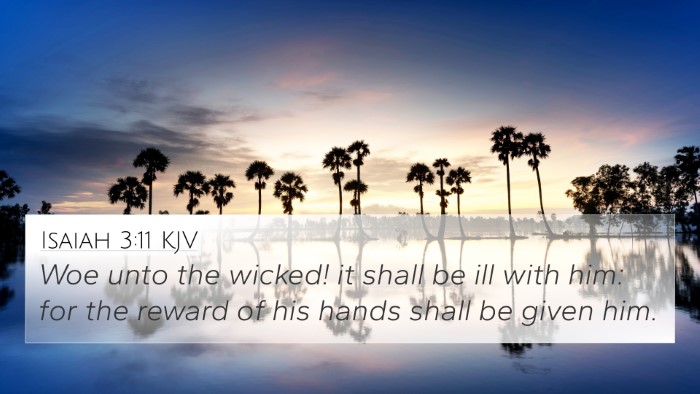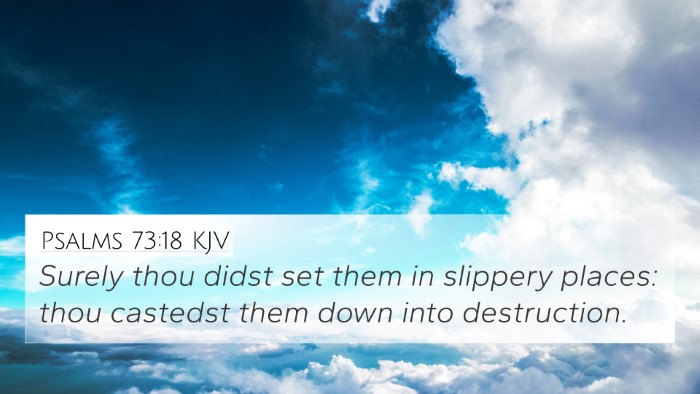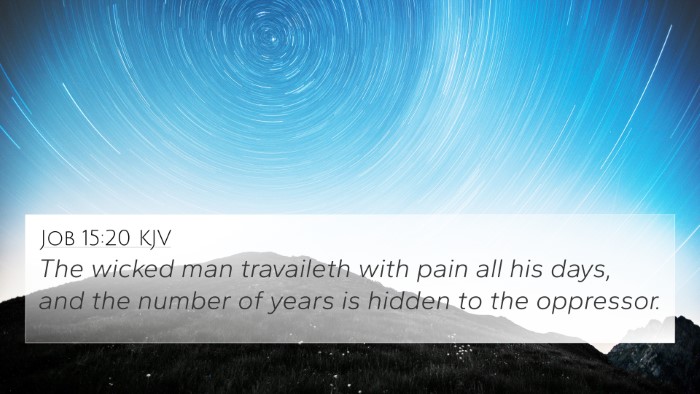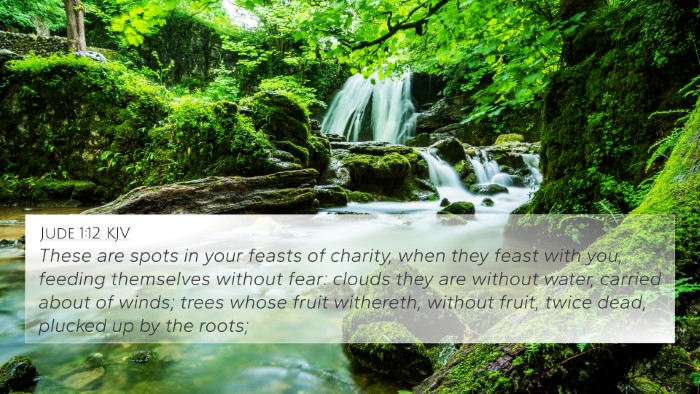Isaiah 57:20 is a profound verse that speaks to the contrast between the peace of the righteous and the turmoil of the wicked. In this verse, the prophet Isaiah conveys a significant truth about the human condition, particularly the spiritual state of those who are far from God.
Verse Explanation:
The verse reads:
"But the wicked are like the troubled sea, when it cannot rest, whose waters cast up mire and dirt."
This imagery of the "troubled sea" captures the instability and chaos present in the lives of the wicked. Matthew Henry explains that the wicked are restless and turbulent because they do not have the peace that comes from God. Albert Barnes comments on how the sea, in its turmoil, could represent the constant agitation of those who turn away from God, unable to find true rest or satisfaction.
Adam Clarke further illustrates this point by highlighting the notion that the wicked experience a lack of tranquility. By contrast, the righteous, who rely on God and His principles, enjoy a life filled with peace and stability. This illustrates a fundamental theme in Scripture: that turning away from God leads to disorder, while turning toward Him brings peace.
Connections to Other Bible Verses:
Isaiah 57:20 holds significant connections to various other verses in the Bible, enhancing our understanding of its themes. Below are some notable cross-references:
- James 1:6: "But when you ask, you must believe and not doubt, because the one who doubts is like a wave of the sea, blown and tossed by the wind." This verse draws parallels with the imagery of restlessness that Isaiah depicts.
- Matthew 11:28-30: "Come to me, all you who are weary and burdened, and I will give you rest." This emphasizes the peace found in Christ versus the turmoil of the wicked.
- Psalm 32:10: "Many are the woes of the wicked, but the Lord's unfailing love surrounds the one who trusts in him." This further illustrates the protection and peace the righteous receive.
- Proverbs 4:18: "The path of the righteous is like the morning sun, shining ever brighter till the full light of day." This shows the contrast between the righteousness that brings light and the darkness of the wicked.
- Isaiah 48:22: "There is no peace," says the Lord, "for the wicked." This directly ties back to the assertion made in Isaiah 57:20.
- Revelation 21:8: "But the cowardly, the unbelieving, the vile, the murderers, the sexually immoral, those who practice magic arts, the idolaters and all liars—they will be consigned to the fiery lake of burning sulfur. This is the second death." This serves as a particular warning regarding the fate of the wicked.
- Jeremiah 23:17: "They keep saying to those who despise me, 'The Lord says: You will have peace.' And to all who follow the stubbornness of their hearts they say, 'No harm will come to you.'" This shows a false sense of peace experienced by those who are wicked.
- Psalm 1:4: "Not so the wicked! They are like chaff that the wind blows away." This verse also emphasizes the instability of the wicked compared to the planted and nourished righteous.
- Romans 8:6: "The mind governed by the flesh is death, but the mind governed by the Spirit is life and peace." This reinforces that true peace is found only through living in accordance with God's Spirit.
Thematic Connections:
When studying this verse, the themes of peace versus unrest, God’s protection, and the destiny of the wicked emerge. These themes encourage readers to reflect on their spiritual state and the foundational truths of God’s Word.
For those interested in a deeper understanding of cross-referencing Bible verses, utilizing tools like a Bible concordance or a cross-reference Bible study guide can enrich their study. By identifying connections between different scriptures, one can grasp a more holistic view of Biblical teachings, enhancing their understanding of complex issues such as justice, peace, and divine judgment.
Conclusion:
In summary, Isaiah 57:20 powerfully articulates the distress that accompanies wickedness while highlighting the peace available through a relationship with God. Through comparative Bible verse analysis, we see how this verse connects to many others, building a comprehensive understanding of God's Word on the subject of peace and wickedness. Engaging with these scriptures through scriptural cross-referencing enhances our understanding of God's nature and His expectations of humanity.
